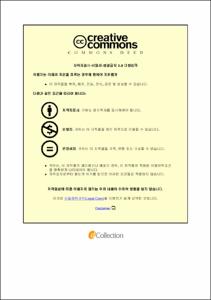청소년 공격성에 관한 메타경로분석
- Alternative Title
- A meta-path analysis of Variables in Youth Aggression : Parental Violence, Social Withdrawal, Depressive
- Abstract
- 본 연구는 좌절-공격이론 관점에서 청소년 공격성에 영향을 미치는 주요변인으로 채택된 부모 학대, 사회적 위축, 우울의 변인들 간의 관계를 규명하고자 가설적 모형을 설정하여 메타경로분석을 실시하였다. 이를 통해 환경 변인인 부모 학대, 사회적 위축이 정서변인인 우울을 매개하여 청소년 공격성으로 진행되는 경로를 탐색함으로 주요 요인들이 청소년 공격성에 어떤 영향을 미치고 있으며, 환경요인과 정서요인 사이의 상호연관성이 어떻게 공격행동으로 나타나는지에 대해 알아보는 것에 그 목적이 있다.
이를 위해 2000년부터 2019년 2월까지 국내에서 진행된 석·박사 학위 논문 및 학술지를 대상으로 메타분석을 실시하였다. 자료 분석은 청소년 공격성 관련 주요 변인들을 메타경로분석하기 위해 R x64 3.5.3 및 R package인 metaSEM을 사용하였으며, 적합도 검증을 위하여 CFI, TLI, SRMR, RMSEA을 통해 추정하였다.
부모 학대, 사회적 위축이 우울을 매개하여 청소년 공격성에 미치는 경로를 요약하면 다음과 같다.
청소년 공격성 관련 주요 요인에 대한 메타분석한 결과 큰 효과크기를 보이는 변인으로는 사회적 위축-우울(Zr=.521), 우울-공격성(Zr=.424)을 나타났으며, 중간 효과크기를 보이는 변인은 사회적 위축-공격성(Zr=.361), 부모 학대-우울(Zr=.345), 부모 학대-공격성(Zr=.272), 부모 학대-사회적위축(Zr=.122)순으로 분석되었으며, 청소년 공격성 관련 주요 변인인 부모 학대, 사회적 위축이 청소년 공격성에 이르는 경로에서 우울이 완전 매개하는 것으로 나타났다.
이러한 결과는 주요변인 간 메타분석을 통하여 주요 변인들 간의 설명력이 다소 상이한 결과들에 대해 상대적 우위성이나 관련성을 통합적으로 다뤄 제시한 점에서 의미가 있다. 또한, 본 연구는 환경요인(부모학대, 사회적 위축)이 우울을 매개하여 청소년 공격성에 영향을 미치는 것을 확인하였다. 이는 청소년 공격성을 설명하기 위해 좌절-공격이론을 적용 할 수 있음으로 볼 수 있다. 그러므로 청소년 우울을 관리할 수 있다면 청소년 공격성에 간접적인 영향을 주는 부모 학대 및 사회적 위축을 개입하는 것보다 더욱 효과적인 전략이 될 수 있음을 시사한다.
마지막으로 본 연구의 제한점과 후속 연구를 위한 제언은 다음과 같다.
첫째, 청소년 공격성 및 주요 변인들 간의 일부 요인들 간의 관계에 대한 메타분석이 이루어짐에 있어 다소 적은 연구수들이 포함되는 한계가 있어 언급되지 않은 요인까지 포함하여 보다 많은 연구물의 통합적인 분석이 필요할 것이다. 둘째, 주요 변인들에 대한 개념적 범위와 측정도구의 동질성을 충분히 반영하지 못한 한계가 있으므로 동일한 개념과 측정도구를 사용하여 비교분석이 필요할 것이다. 셋째, 공격성 관련 변인들 중 일부만 사용하여 청소년 공격성을 검증하였다는 한계 있으므로 청소년 공격성 관련 다양한 변인들 간의 관계를 포함하는 가설적 연구모형의 분석이 필요할 것이다.
The study looked into the relationship between parental violence, social withdrawal and depressive, the main variables that affect the aggressiveness of teenagers. This study examines the effects of environmental factors such as parental violence and social withdrawal on the aggressiveness of teenagers by exploring the path of adolescent aggression through mediation of emotional depressive. The purpose of the study is to investigate whether it appears as an attacking behavior.
For this purpose, meta - analysis was conducted for the theses and journals of scholarship and doctorate in Korea from 2000 to February 2019. Data analysis used R x64 3.5.3 and R package metaSEM for meta - path analysis of major variables related to adolescent aggressiveness, and CFI, TLI, SRMR and RMSEA were used for fitness test.
A parental violence, and social withdrawal mediated depressive on adolescent aggression are summarized as follows.
First, the meta-analysis of the major factors related to youth aggression revealed that social withdrawal-Depressive (Zr = .521), depressive-aggression (Zr = .424) the variables were as follows: social withdrawal - aggression (Zr = .361), parental violence - depressive (Zr = .345), parental violence - aggression (Zr = .272), parental violence - social withdrawal.
Second, Depressive was found to be mediated in the path of Parental violence and social withdrawal to juvenile aggression.
These results are meaningful in that the main variation, inter-terrestrial meta-analysis, provides an integrated view of relative superiority or relevance to outcomes with somewhat different explanatory power among the main variables. In addition, this study confirmed that environmental factors (parent abuse, social contraction) mediated depression and affected youth aggression. This can be seen as applying frustration-attack theory to account for youth aggression. Thus, it suggests that managing youth depression can be a more effective strategy than intervening in parent abuse and social atrophy that indirectly affects youth aggression.
Finally, the limitations of this study and suggestions for further study are as follows. First, the meta-analysis of youth aggression and the relationship between some of the factors among the main variables would have limits that would include some small numbers of researchers, which would require an integrated analysis of more studies, including those not mentioned. Second, since there are limitations that do not fully reflect the conceptual scope and homogeneity of measurement tools for key variables, comparative analysis will be required using the same concepts and measurement tools. Third, the limitations of verifying juvenile aggression by using only some of the aggression-related variables will require an analysis of a hypothetical research model that includes relationships among the various variables related to youth aggression.
- Issued Date
- 2019
- Awarded Date
- 2019. 8
- Type
- Dissertation
- Publisher
- 부경대학교
- Affiliation
- 부경대학교 대학원
- Department
- 대학원 교육컨설팅협동과정
- Advisor
- 천성문
- Table Of Contents
- Ⅰ. 서론 1
1. 연구의 필요성 및 목적 1
2. 연구 문제 6
3. 용어의 정의 7
Ⅱ. 이론적 배경 10
1. 공격성의 정의 10
2. 부모 학대와 공격성 12
3. 사회적 위축과 공격성 14
4. 우울과 공격성 16
Ⅲ. 방법 18
1. 자료의 수집 및 절차 18
2. 자료의 코딩 21
3. 자료의 분석방법 21
Ⅳ. 결과 25
1. 분석 대상 논문의 일반적 특성 25
2. 출간오류 검정 26
3. 청소년 공격성의 주요 변인들간의 메타분석 27
4. 모형검증 28
Ⅴ. 논의 32
참고문헌 39
- Degree
- Master
- Files in This Item:
-
-
Download
 청소년 공격성에 관한 메타경로분석.pdf
기타 데이터 / 753.58 kB / Adobe PDF
청소년 공격성에 관한 메타경로분석.pdf
기타 데이터 / 753.58 kB / Adobe PDF
-
Items in Repository are protected by copyright, with all rights reserved, unless otherwise indicated.